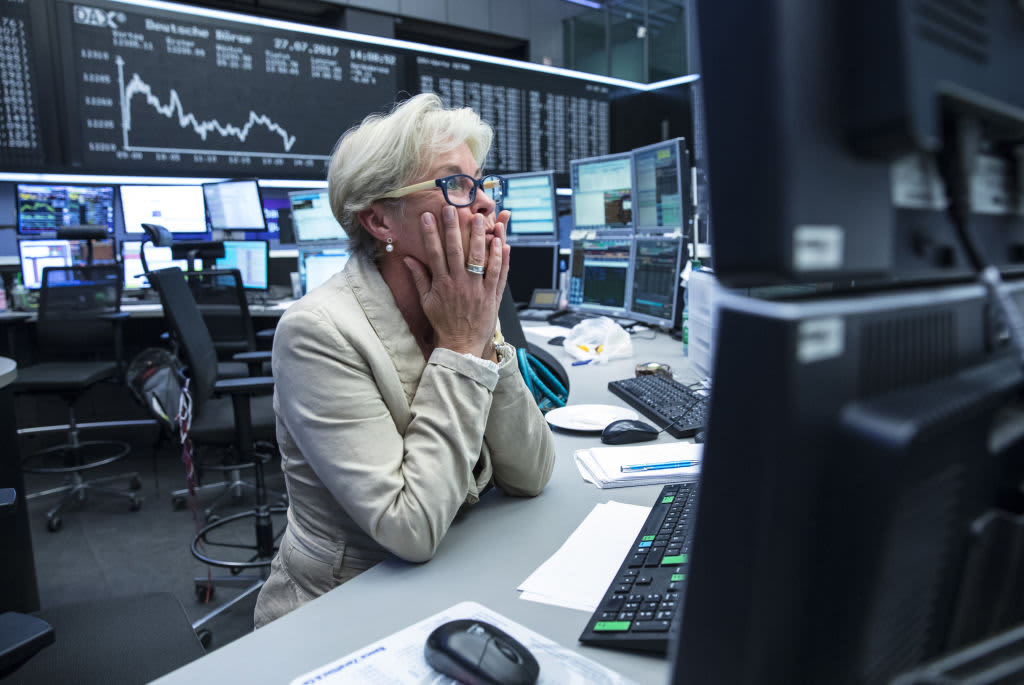Growing uncertainty about global economic growth could lead to "bouts of high volatility" in financial markets, the European Central Bank (ECB) warned Wednesday.
In its Financial Stability Review (FSR), which provides an appraisal of potential risks to stability in the euro area, the ECB cautioned that weaker-than-expected growth and a possible escalation of trade tensions could trigger further falls in asset prices.
Global stocks have gone through periods of heavy selling on the back of an escalating trade war between the U.S. and China. The Dow Jones Industrial Average index and the S&P are down more than 4.6% and 4% respectively since the start of this month. Meanwhile, the pan-European Stoxx 600 is down 5.2% for the month of May.
Speaking to CNBC's Annette Weisbach following the release of the report, Luis de Guindos, vice president of the ECB, said a full-blown trade war between the U.S. and China would be "extremely detrimental," adding that "it could affect not only the volatility of markets, it could affect the real economy quite rapidly."
He said that within the context of the current global economic slowdown, escalating trade tensions would be "very negative news" for the global economy.
In March, the euro zone's central bank slashed its growth forecast for 2019 to 1.1% from an earlier forecast of 1.7% made in December 2018. ECB President Mario Draghi said at the time that there had been a "sizable moderation in economic expansion that will extend into the current year."
Luke Hickmore, a senior investment director at Aberdeen Standard Investments, told CNBC's "Street Signs Europe" Wednesday that the findings from the new report were "not actually a bad situation."
"The ECB are doing exactly what you'd hope they'd do — they're warning you about risks, but you're getting well paid for a lot of those risks if you're in credit markets," he said, adding that within the credit landscape "there are lots of attractive opportunities around European banks, with a few risks."
Leveraged loans
The report on Wednesday identified the growing global leveraged loan sector as particularly susceptible to weaker corporate earnings. Leveraged loans are the type of loan that is extended to companies or individuals that already have considerable amounts of debt and/or a poor credit history. U.S. leveraged loans recently became a $1 trillion market, according to S&P.
The ECB further warned that banks will continue to struggle with profitability remaining low in the euro area. The ECB estimates suggest that a significant portion of European banks will miss expected returns of around 8-10% required by investors.
Though overall capital requirement in banks remains strong, the FSR calls on banks to tackle a number of structural challenges in order to return to profitability. Banks in Europe have struggled with weak earnings growth in the last few years due to a low interest rate environment, uncertainty around the U.K.'s exit from the European Union and in some cases massive fines for their involvement in the 2008 financial crisis.
De Guindos said consolidation might help the banks to tackle long-standing structural problems.
"Consolidation could be an instrument, not only domestic consolidation but also cross-border consolidation, could be an instrument in order to get rid of this excess capacity and to start to gain efficiency in terms of costs and in terms of profitability, but this is something that has to be implemented by the management of the banks," he said.
Property warning
Higher risk-taking in the investment fund sector was also flagged in the report, and the FSR cautioned that a sudden repricing of financial assets could mean investors withdraw their money from funds, which would lead to forced asset sales and amplify stress in less liquid markets.
The ECB also warned that real estate prices could correct if the downside risks to growth were to materialize. House prices in the euro area grew by 4.2% in 2018, which the report said contributed to "signs of mild overvaluation for the euro area as a whole."


